Gallup, a company that compares the national poll results of college students, revealed that Rollins graduates are more likely to earn advanced degrees, but they are also less likely to say their education was worth the cost.
Approximately 55 percent of graduates earn an advanced degree, which is higher than the national average of 36 percent and the leading liberal arts college average of 47 percent.
Earning an advanced degree is linked to higher levels of well-being and positive life outcomes, including increased earnings and workplace engagement.
Rollins graduates are also more likely to have the highest individual incomes compared to other polled graduates, with 10 percent earning $240,000 a year. Only 2 to 4 percent of graduates at other institutions earn the same amount.
Workplace engagement for Rollins graduates, who say they are emotionally and physically connected to their work, is strong at 44 percent. The national average is 35 percent.
Similarly, only 8 percent of Rollins graduates are likely to be actively disengaged in their workplace; the national average is 14 percent. According to Gallup, employee engagement is measured by growth, teamwork, individual contribution, and meeting basic needs.
Despite these positive numbers, Rollins has areas to improve on. Helen Stubbs, senior consultant at Gallup, said, “there are some key takeaways that you can take in hand as you move forward as an institution.”
Stubbs recommended focusing on “aspects of the Rollins student experience that drive performance” such as “advice, mentoring, and academic rigor and excellence.”
She advised that fostering strong relationships with professors, challenging oneself academically, and seeking internships will help drive a positive college experience.
Stubbs encourages Rollins to focus on these steps because only 39 percent of its graduates said their education was worth the cost.
In this category, Rollins lags behind the national liberal arts college average of 54 percent and 50 percent for all US colleges.
However, about 82 percent of graduates said they were academically challenged and appreciated Rollins’ committment to academic excellence. This group was also more likely to say their education was worth the cost.
Rollins graduates fall behind the 90 percent of liberal arts students who said they were academically challenged, but they did score higher than the average of 79 percent for all US colleges.
Only 38 percent of Rollins graduates would recommend Rollins to others, compared to the 41 percent of national colleges and peer institutions. The figures for national liberal arts colleges and Florida four-year institutions are both 48 percent.
The likeliness that students will recommend a college to their peers is measured by a Net Promoter Score (NPS). NPS is measured on a scale of -100 to 100, with the 30-70 range being considered great.
NPS helps institutions understand about how many students are considered loyal to the college. The NPS score of Rollins is 33 percent—higher than the national average of 32 percent, but lower than the liberal arts college average of 45 percent.
Those that did recommend Rollins said the college was committed to academic excellence; they had a mentor who encouraged them to pursue their goals and dreams.
Students who claimed they interacted with people from different backgrounds on campus were almost four times more likely to recommend Rollins.
Only 31 percent of graduates said that their degree prepared them for a career. Stubbs said this could be improved by inviting alumni to speak at events and offer more applied internships.
Stubbs also advised the college to continue to develop programs based on these findings, scrutinize the key focus areas, identify the best practices from leading campuses, and reassess student and graduate outcomes.
The Board of Trustees, who were presented with the results of this poll, expressed an interest in hearing from current students to determine what can be done to improve the Rollins experience.

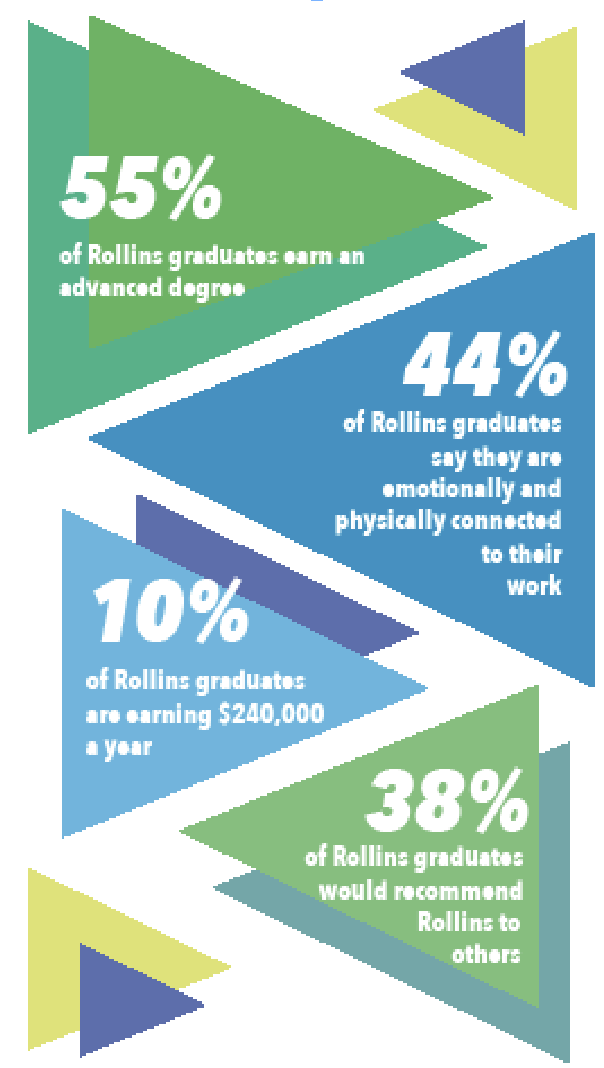



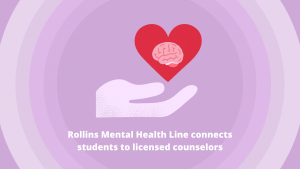








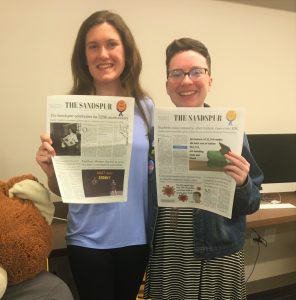
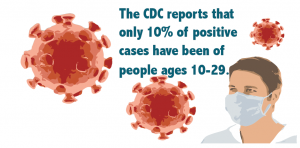
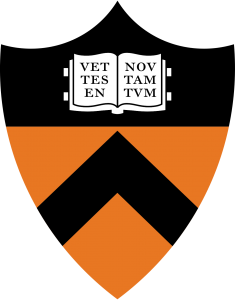

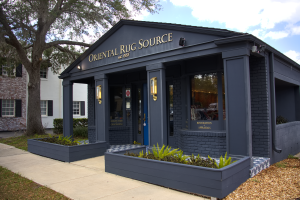




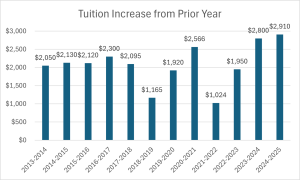


Be First to Comment